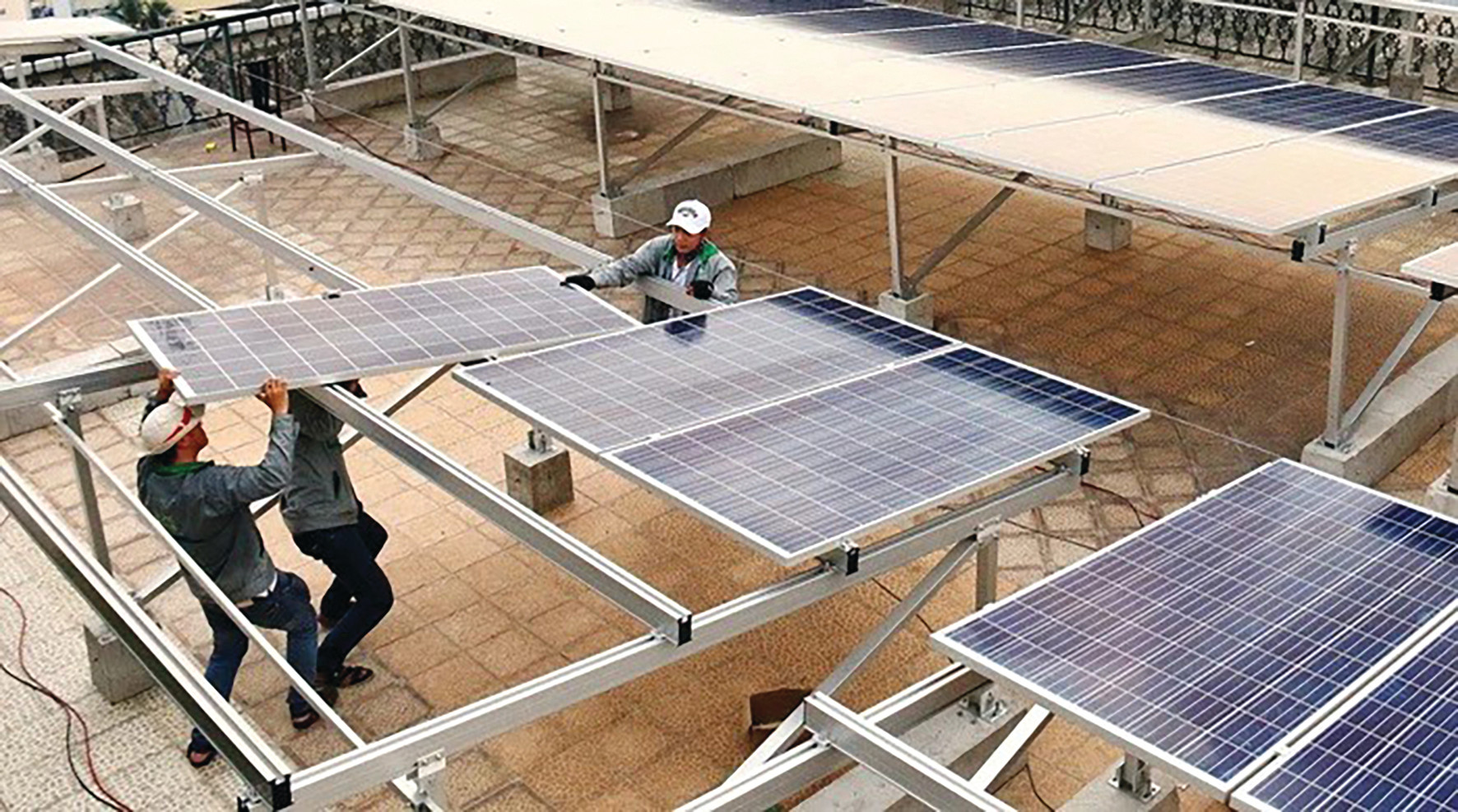Unblocking the bottlenecks in rooftop solar power
The development of solar power has become a trend, bringing significant benefits to both businesses and the public.
Mr. Phan Cong Tien, Director of the Institute for Applied Research on Smart Energy, remarked that reducing electricity bills, contributing to the green transition, and enhancing the power supply to the national grid are the most practical values of rooftop solar power.
According to him, businesses currently face numerous difficulties when investing in and installing rooftop solar power systems (RSP) for production purposes.

The allocation of "quotas" by province presents a major barrier for businesses and individuals in accessing solar energy
Too Many Procedures
Recently, the Ministry of Industry and Trade issued official letter No. 200 /BC-BCT, reporting to the Government on the implementation of the directives in Notice No. 356/TB-VPCP dated July 30, 2024, regarding the Draft Decree on self-produced and self-consumed RSP on August 5, 2024, revealing that the implementation process still involves a lot of administrative procedures.
Specifically, the Draft assigns provincial Departments of Industry and Trade to approve the registration of RSP capacity for businesses, which must submit many complicated application procedures. These include procedures like installation design drawings and construction permits for residential types. For other electricity users, additional submissions are required, such as investment policies, fire prevention and fighting approvals, and environmental protection certificates.
In essence, registering for solar power installation capacity only aims to control the total capacity of each locality according to the electricity planning, thereby regulating the amount of solar power into the system according to the allocated capacity and ensuring safe operation conditions for the power system. Therefore, the Draft should stipulate that the local Department of Industry and Trade only needs to monitor, approve, and record the total amount of licensed solar power capacity (kWp). According to current regulations, the implementers must still comply with existing legal regulations on construction, fire prevention, or environmental protection.

Mr. Tiến believes that these overly cumbersome administrative procedures will waste time for businesses and individuals when registering, while it is uncertain whether the registered RSP capacity will be approved due to local quota limit s. However, right from the registration stage, businesses have already had to invest in design drawings or fire prevention and environmental protection documents as required by the procedures.
Therefore, he suggested establishing a "one-stop-shop" mechanism for obtaining permits and connecting to the grid, while digitizing the registration and capacity approval processes through software systems on computers to make it easier for the public and businesses, as well as to reduce unnecessary tasks for the licensing agencies.
Untying the Knots
"In my research on the draft Decree, I find that the off-grid rooftop solar model can benefit the power system because it does not affect grid operations. However, this model is currently not feasible due to its high costs and lack of financial viability, even in modern countries where it is not used. The draft Decree requiring permission from authorities to implement this model is unnecessary. Instead, authorities should research and define other technical models that are being applied in other countries, such as Virtual Power Plants (VPP), Microgrids, or combined solar and storage models like behind-the-meter storage, community storage, or Aggregators," said Mr. Tien.
These models can both utilize solar energy and minimize the impact of variable energy sources on the grid.
Solar power in general and rooftop solar, in particular, have proven to be the cheapest and easiest sources of power to implement with high output efficiency. However, many businesses believe that allocating quotas by province will be a major barrier for them and the public in accessing this valuable energy source. In terms of grid management, monitoring and controlling rooftop solar from the national dispatch center can be considered a "blind spot" as it can only monitor up to the 110/22 kV substation level or higher. Meanwhile, the rooftop solar power system affects the grid at the 0.4 kV low voltage level. Therefore, to resolve this "blind spot," experience from other countries shows the need to decentralize management by region and increase the participation of provincial/city power distribution companies in controlling distributed solar power sources.
Moreover, it is necessary to analyze and clarify how rooftop solar affects the grid and the mitigation measures. Another solution is to "marketize" these measures. Once the responsibilities and costs are clearly defined, the allocation of tasks and payments will become transparent. For example, power companies can handle the mitigation measures, while investors in the RSP system will pay...
Untying these knots and effectively implementing new solutions is the sustainable financial solution to remove barriers and maximize the potential of this valuable energy source for the economy.

At the forum "Rooftop Solar for Businesses: A Solution for Energy Transition and Savings," organized by Enterprise Forum magazine in coordination with relevant agencies on August 16, 2024, VCCI Vice President Võ Tân Thành remarked, the EU's Green Deals are bringing about significant changes to Vietnam's exports.
Products such as textiles, electronics, information technology, agricultural goods, and food exports to the EU will have to meet increasingly stringent requirements regarding energy efficiency, emission reductions, waste management, and the use of recycled materials. Additionally, products such as steel, aluminum, and cement are expected to be most affected by the green transition in the EU market in the near future.
"Given these technical barriers, in order to export and benefit from the new generation of FTAs, in addition to basic conditions like rules of origin and quality standards, compliance with green standards is also mandatory for businesses. This is a crucial basis for the Vietnamese business community to obtain green certifications, which will grant them preferential points when exporting to these major markets," assessed VCCI Vice President Võ Tân Thành.








